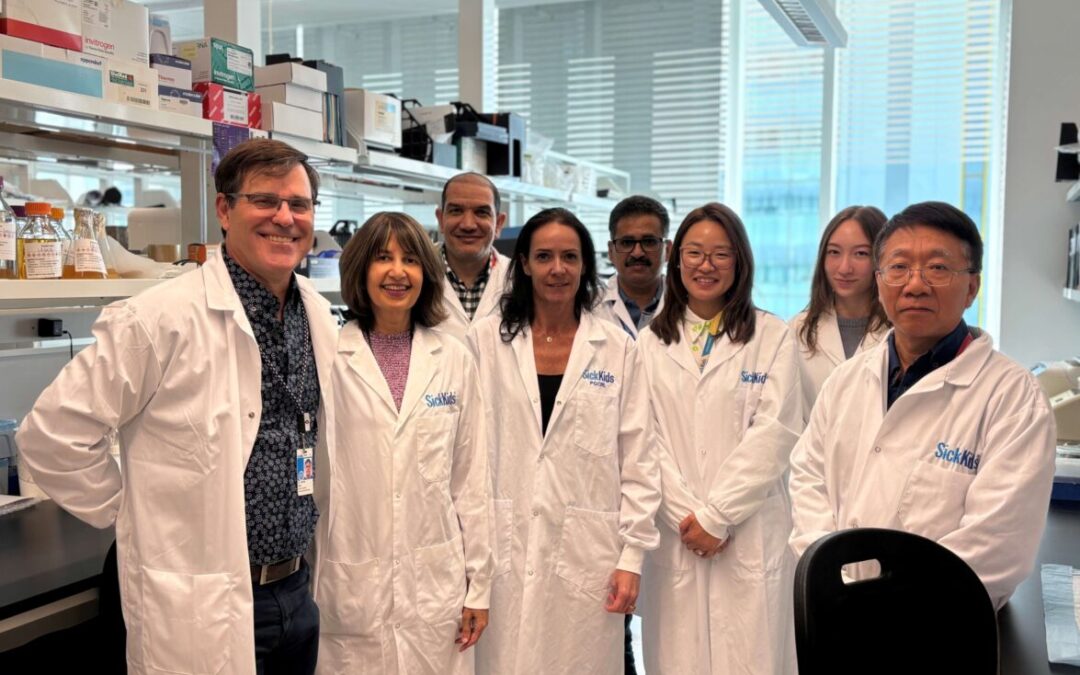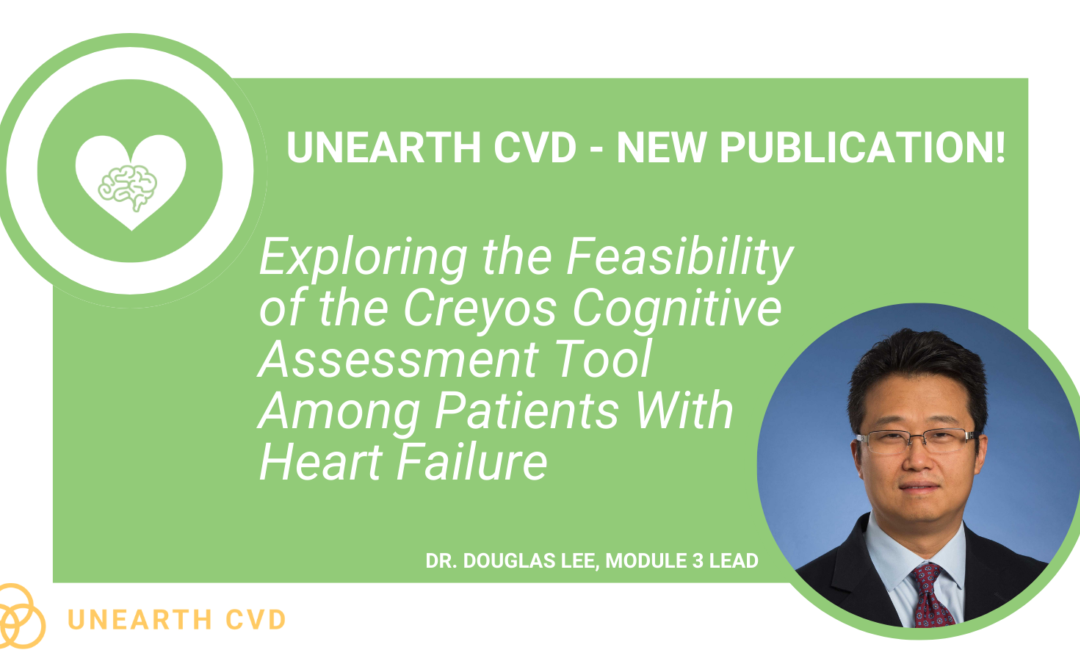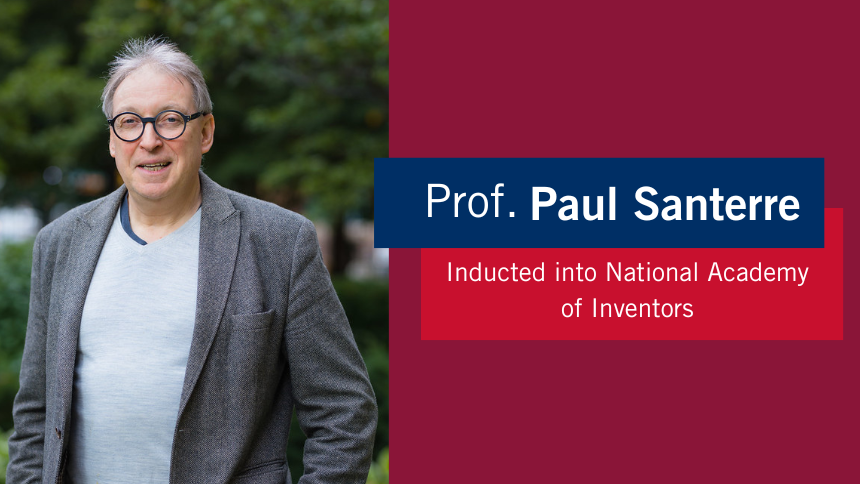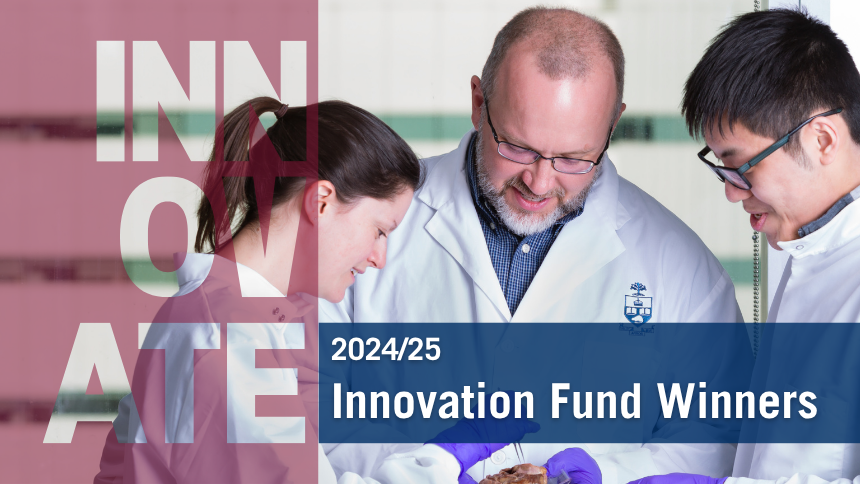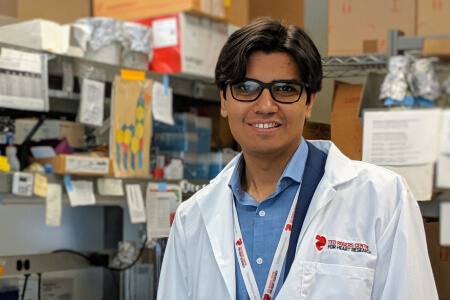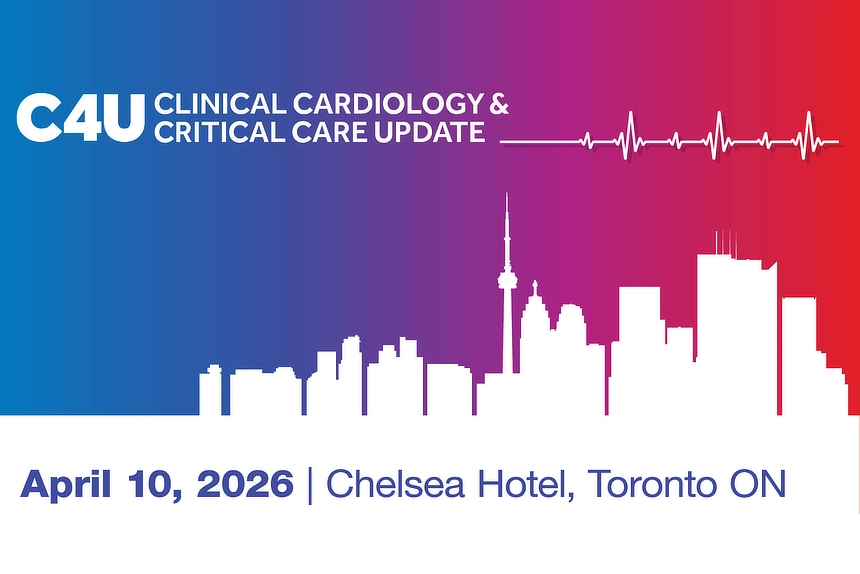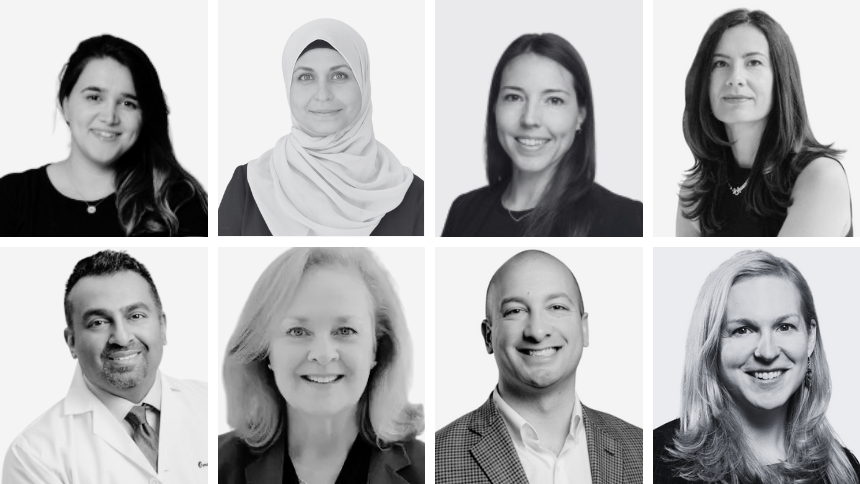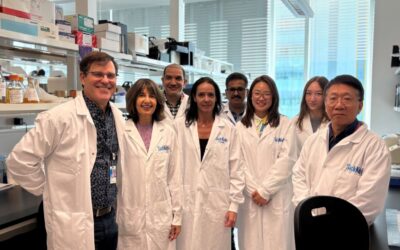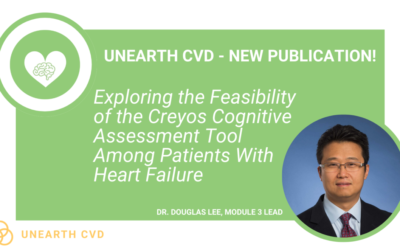Entrepreneurship for Cardiovascular Health Opportunities (ECHO) is a 12-month national training program supporting cardiovascular research commercialization through education, mentorship, networking, and funding. Led by a diverse team of experts, ECHO fosters successful startups in cardiovascular health, culminating in ECHO PITCH, a pitch competition offering up to $250,000 in funding.
With the 2024-2025 ECHO cohort preparing to compete at ECHO PITCH on October 15, 2025 (if you’d like to join our live audience, please see more details here), we took the opportunity to sit down with the venture finalists to learn more about them, their commercialization process, and how the ECHO program has helped their entrepreneurship journey so far. Today we’re speaking with the team at Quthero Canada, including Dr. Milica Radisic (CEO), Dr. Dawn Bannerman (Senior Scientist), Sargol Okhovatian (Scientist), and Dr. Alaa Alsaafin (Business Development Lead/MSL).
Tell us a little bit about Quthero
Quthero is a life sciences startup pioneering in cardio-immunology, delivering innovative solutions for cardiovascular disease. Our peptide therapeutic specifically targets the immune-inflammatory mechanisms underlying progression of heart disease, shifting innate immune cells from a damaging inflammatory state to a regenerative one. By reducing inflammation that leads to fibrosis, promoting vascularization and enhancing the survival of heart cells, Quthero has the potential to halt the progression from ischemia to heart failure. This can benefit patients and impact the $11B annual global cardiovascular healthcare market.
What was the inspiration behind creating Quthero?
Quthero was founded with the goal of bringing Q-peptide technology directly to patients. Although conditions like dermatological recovery, surgical healing, and heart failure may seem unrelated, they all share a common challenge: persistent inflammation that hinders healing, causes discomfort, and leads to fibrosis and scarring. Quthero’s therapeutic peptide platform tackles these issues by promoting faster and more effective tissue regeneration.
Dr. Milica Radisic created Quthero because she wanted to translate her discoveries about the immunomodulatory and regenerative peptide QHREDGS into practical applications. She realized that continuing to focus solely on basic research and publishing academic papers would not allow this innovation to benefit patients. Quthero was established to bridge the gap between laboratory findings and real-world impact.
Can you explain how the technology for Quthero works to help individuals with mitigating inflammation?
Quthero’s therapeutic peptide platform is derived from a human growth factor, Angiopoietin-1, which is responsible for tissue growth and stable vascularization. The way it interacts with the innate immune system is the most exciting aspect of this work. The Q-peptide is unique because it acts on innate immune cells—macrophages. As the term “innate” suggests, this is a part of the immune system everyone is born with. The Q-peptide interacts with these cells in a way that enables them to perform their regenerative functions. However, in some cases, they do not carry out these functions because the signals they receive from their environment indicate danger.
When macrophages perceive danger, they shift into defensive mode and activate inflammatory cytokines. In this state, they essentially launch an aggressive response to protect the body from the perceived threat. However, in doing so, they can sometimes damage the body’s own tissues. This process contributes to poor healing in many conditions, including heart disease. By providing the appropriate signals to promote a regenerative phenotype in macrophages, the Q-peptide can help heal a wide range of conditions, from dermatological disorders to cardiovascular diseases.
What makes Quthero distinct from other anti-inflammatory therapeutics currently available?
New research proves that innate immune cells underpin the progression of heart disease. By shifting macrophages from an inflammatory to a regenerative state, Quthero’s proprietary peptide drug QP-031 has shown significantly improved cardiac function, reduced fibrosis and improved perfusion post-myocardial infarction (MI) in preclinical models, using stringent benchmarks such as Magnetic Resonance Imaging. These findings enable us to pursue the acute coronary syndrome (ACS) market, which exceeds $10B globally, with strong demand for new therapeutics (7.7% CAGR).
Heart failure is a progressive, incurable condition marked by a stiff, fibrotic heart that gradually loses its ability to pump effectively. It can often result from conditions such as heart attack. Existing treatments mainly manage symptoms and do not address the underlying mechanisms that drive disease progression. The core issue stems from immuno-inflammatory processes that get triggered after injuries, such as heart attack, or due to factors like high blood pressure, which lead to chronic inflammation, tissue congestion, fibrosis, and ultimately, heart failure.
Currently, treatment options such as ACE inhibitors and beta-blockers focus on symptom management. Certain genetic conditions have benefited from targeted small-molecule therapies such as Mavacamten, which provide a cure for select cases. However, non-specific steroids remain the standard for managing inflammatory conditions like immune-mediated myocarditis.
Our solution targets the body’s innate immune system whose polarization state determines whether healing or further damage will occur. Unlike other therapies, our approach modulates inflammation by influencing macrophage polarization, enhances vascular stability, and reduces apoptosis in cardiomyocytes. This technology is uniquely positioned to enable earlier intervention, addressing a key limitation of current treatments. Our approach is designed for conditions such as immune-mediated myocarditis and MI, which interrupts the disease process before irreversible damage occurs. Our newest data demonstrates that the peptide drug can also help with grafting stem cell-derived cardiac tissues into the heart muscle post-MI.
What has been the biggest benefit of being part of the ECHO program so far?
The biggest benefit of the ECHO program has been the depth and support tailored specifically to our stage and needs. Quthero is a start-up, translating academic research into a therapeutic platform. We are trying to bridge the gap between laboratory validation and market readiness. The ECHO program helped us navigate that gap by providing expert mentorship from individuals that have experience in life sciences entrepreneurship and venture creation. It has also enabled career development for our staff, Dawn, Alaa, and Sargol, who benefit the most from this mentorship.
We truly appreciate the sessions that cover how to critically evaluate our business model, sharpen our value proposition, and identify key assumptions to test for market segmentation. We benefited from actionable feedback and weekly seminars on our go-to-market strategy, IP positioning, regulatory considerations, as well as hearing from successful entrepreneurs about how they went about creating their companies.
How does Quthero plan to expand or evolve in the next five to ten years?
We reformulated the way we deliver the peptide, moving from a peptide conjugated into a hydrogel to a chemically redeveloped stable small molecule administered injection under the skin. We have validated this new peptide drug, QP-031, in a rat MI model, demonstrating a significantly improved cardiac function, reduced fibrosis and improved perfusion post-MI in dose dependent manner using Magnetic Resonance Imaging
Next, we will conduct a large animal validation study in a porcine MI model, followed by a GMP production run. We anticipate securing a clinical development partnership to enable a first-in-human clinical trial for heart failure. Pending positive results, we will submit an IND application to the FDA to continue advancing the asset toward market approval.
ABOUT ECHO
ECHO is a specialized entrepreneurship training and mentorship program led by veteran entrepreneurs and consultants across a variety of sectors. Ventures participating in this 12-month online training program receive entrepreneurship training, mentorship, partnership and funding opportunities; support towards creating and growing their high-impact, health-focused startup; and tools to accelerate the translation of their health innovations from the bench to the bedside.
ECHO was launched in 2018 under the University of Toronto’s Translational Biology and Engineering Program (TBEP) at the Ted Rogers Centre for Heart Research. To date, ECHO has supported 178 participants and 69 ventures, awarding over $1.5 million to help transform cutting-edge cardiovascular research into real-world solutions.
Building on this success, ECHO rebranded this year to the Entrepreneurship for Commercialization of Health Opportunities (ECHO) program, with expansion beyond its initial focus on cardiovascular health to include all areas of health research and care. ECHO is now led by the Temerty Faculty of Medicine, University of Toronto, in collaboration with the Translational Biology & Engineering Program (TBEP), and with support from the Health Innovation Hub (H2i), Temerty Medicine’s health accelerator. To learn more, please visit https://rhse.temertymedicine.utoronto.ca/ECHO.
